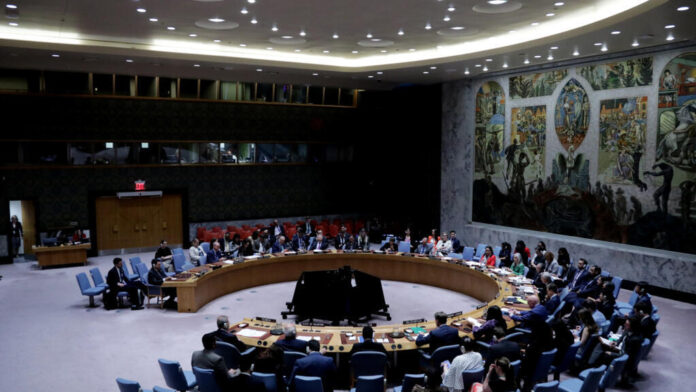As the death toll in Gaza mounts and humanitarian conditions reach a breaking point, Washington finds itself increasingly isolated, clinging to its veto while the rest of the world demands a ceasefire.
Another Resolution, Another American Veto in Sight
On Thursday, September 18, the UN Security Council will once again vote on a draft resolution calling for an immediate ceasefire in Gaza and unrestricted humanitarian access. Though broadly supported by Council members, the initiative is expected to be vetoed yet again by the United States, which has used its power repeatedly to shield its Israeli ally.
The renewed push comes in response to the United Nations’ official declaration of famine in Gaza—a war-torn enclave ravaged by nearly two years of relentless Israeli military operations. The ten elected members of the Security Council began drafting the resolution in late August, facing growing urgency from global observers, humanitarian agencies, and even some Western capitals.
Symbolic Resistance Against American Obstruction
The initial draft focused solely on lifting all restrictions on humanitarian aid. But France, the UK, and Russia reportedly questioned the utility of a resolution framed strictly as a humanitarian gesture—especially when the Council’s mandate is to uphold peace and security. Moreover, any such resolution would still risk being torpedoed by the United States.
The current version of the draft goes further. Seen by AFP, the text not only demands the full removal of restrictions on humanitarian aid but also calls for an “immediate, unconditional, and permanent ceasefire in Gaza,” along with the “immediate and unconditional release of all hostages.”
In June, the U.S. vetoed a nearly identical resolution, sparking rare public outrage among the other 14 Security Council members. A European diplomat, speaking anonymously, explained the rationale behind pushing this new attempt: “Doing nothing would be too easy for the Americans. They’d face no accountability from the Council or global public opinion.”
A Coalition Frustrated by American Impunity
The last American veto triggered an unusually visible wave of frustration from other Council members, exposing the growing diplomatic cost of U.S. intransigence. This isn’t just a procedural impasse—it’s a full-blown credibility crisis for the UN Security Council itself.
Israel now faces mounting international pressure to end a war that has displaced, starved, and bombarded Gaza’s civilian population. The campaign began after Hamas launched an unprecedented attack on Israeli soil on October 7, 2023. But nearly two years later, the disproportionate Israeli response has brought Gaza to the brink of collapse.
The upcoming UN General Assembly summit in New York will be overshadowed by this very issue. For many nations, Washington’s blind support for Israel has become a diplomatic liability.
Starvation as Policy? The UN Points the Finger
In mid-May, Israel permitted limited UN aid convoys to enter Gaza—far from sufficient, according to humanitarian organizations. Then, on August 22, the UN formally declared famine in Gaza, citing data from the Integrated Food Security Phase Classification (IPC), a UN-mandated body. Israel, unsurprisingly, rejected both the report and its implications.
The most explosive development came this Tuesday: an independent UN-mandated commission of inquiry accused Israel of committing genocide in Gaza since October 2023, alleging an “intent to destroy the Palestinian people.”
Though the commission does not speak on behalf of the UN, its conclusions carry symbolic weight. For the first time, the accusation of genocide—long dismissed as extremist hyperbole—has been voiced through institutional channels.
The Price of the American Veto
The United States now stands increasingly alone at the UN Security Council. Each veto not only isolates Washington diplomatically but also erodes the legitimacy of the very institution it seeks to control. As famine tightens its grip on Gaza and accusations of genocide enter the international mainstream, the pressure on the U.S. to abandon its intransigence will only grow.
In the end, this is no longer just about Israel and Gaza—it’s about the credibility of the global order itself.



